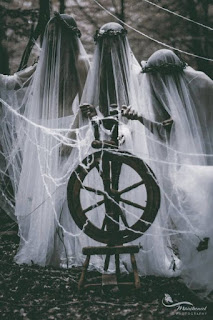 |
| Portal de Playa del Carmen |
The day
after Donald Trump took his oath to "preserve, protect and defend the
Constitution of the United States" to the best of his ability, I found
myself in the company of roughly 100 others, marching up Avenida Quinta from the Portal in
Playa del Carmen, Mexico. We ranged in age from around 10 to around 80, mostly
women, but also some men, mostly from the United States but some Canadians and
a few Mexicans, as well. One guy was an Italian who lived in NYC; one woman
remembered being in China at the time of Tiananmen Square and wearing a
mourning band on her arm throughout her visit there.
This Sister
March in Playa del Carmen was an impulse by a young American woman temporarily
working in Playa and living there with her family. She and her Mexican-born
husband wanted to give their kids an opportunity to live abroad in their
father's country before high school and the complexities involved in teen-age
life kicked in. She found and contacted the Sister March website, and in short
order, listed the march for the rest of us to find.
We joined
the gathering for different reasons, but all shared the organizer's stated purpose:
"Our
intent [she wrote] is to gather together and enjoy the company of one another
as we stroll and contemplate either in silence or in constructive dialogue the
challenges we all face as part of the human rights advocacy community." It
wasn't an anti-Trump march as such, but it did protest and resist certain of the new
administration's avowed goals.
On 21 January, which now seems so long ago though it's been
less than two weeks, there were already concerns that the new administration might
try to roll back rights that many of us feel are fundamental to our values as
Americans, such as an unfettered right to vote, along with rights
considered under international law as fundamental. We might be forgiven this
concern, since it
was based on statements made during the campaign by the now president.
 |
| Sister March bracelets: Playa del Carmen |
The
response of thousands of citizens who have put aside their differences to resist
these actions is laudable and hopeful. While allegations continue from die-hard
supporters of the new administration that the Women's and Sister Marches are
just "whining" because our candidate didn't win, there are signs that some who originally
believed in the president are reconsidering their faith.
The film of the throngs at the Women’s' March, at the Right
to Life March (a march is a march, and there were women who participated in
both of these events), at airports and wherever they've gathered in the public
square are impressive in their celebration of and commitment to their beliefs. It is critically important both that they stay that
way and that they continue.
We need to resist at every turn the illegitimate efforts
of those in the new administration who would shape national interest to
personal interest regardless of the
consequences.
But we need to have a care, as well. There's a well-worn and rather heavy
handed tactic much favored by repressive authority: goading peaceful
demonstration into open conflict. This is usually managed by embedding
provocateurs into crowds to manufacture violence. It can result in painful
injuries--the thugs hired or encouraged to do this aren't selected for their
discursive persuasion, but for their inclination to create mayhem. They may also enjoy administering pain. To
counteract it, one cannot fight back, and others in the crowd must witness and
gather evidence. If possible, as many bodies as are available can
"swarm" the aggressor without inflicting blows to prevent further
harm being visited on the target. Disarming an attacker works, too, if it can
be done without getting drawn into a brawl. It's critically important not to be
tempted into further violence.
 |
| Los Angeles Sister March |
Not easy, but the up side of this kind of disruption is
that it is heavy-handed, and if
demonstrators don't rise to the bait, it can easily be shown for what it is: provocation
(whether spontaneous or paid/incited).
I'm not saying anyone is planning such attempts. I
suggest only that we march on--with eyes peeled, cameras ready and great care, even
as we engage in constructive dialogue and pay close attention one to another.









